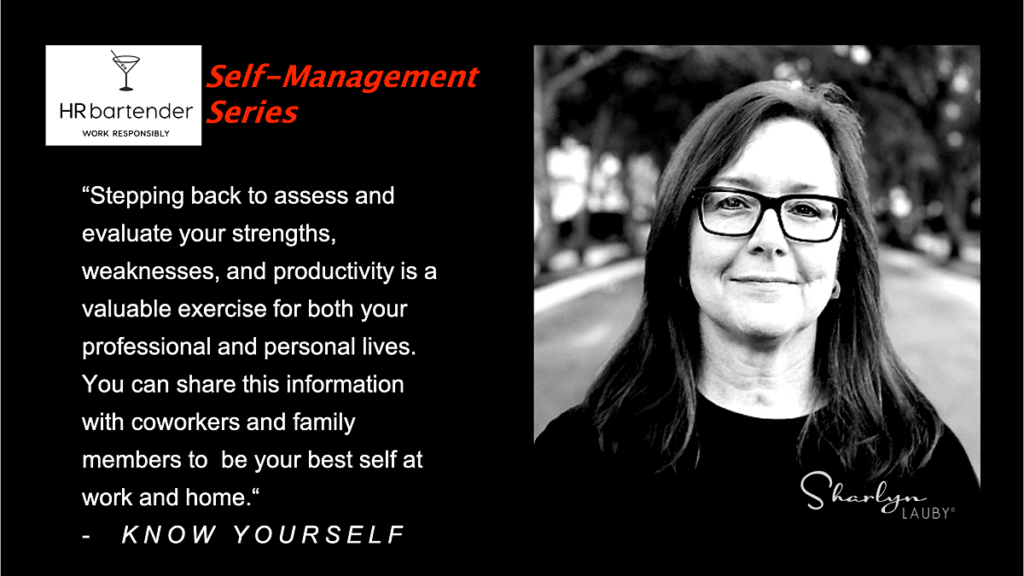Know Yourself – Part 1 of Self Management Series

I’ve written in the past about the concept of self management. It’s defined as understanding and taking responsibility for our own behavior and well-being. Organizations want employees to be self managing. Frankly, employees want it too. When employees can manage themselves, then managers can effectively and efficiently delegate. They can delegate new responsibilities that help employees learn and grow in their careers. This allows employees to get promotions, accept new assignments, as well as everything that goes along with it (i.e. better compensation, etc.)
While he doesn’t refer to it as self management, Dan Pink talks about the concept in his book, “Drive: The Surprising Truth About What Motivates Us”. He says that there are three essential elements of motivation: autonomy, mastery, and purpose. Organizations and individuals have purpose. Employees often work for organizations because their purpose aligns with the organization’s. Organizations and individuals work together to master skills, which is the work that gets done every day.
It’s the third essential element that I believe is the most challenging – autonomy. This is what I refer to as self management. Employees need to have the autonomy to get things done. And it won’t happen by simply telling an employee that they’re autonomous.
The reason I’m resurrecting this conversation about self management is because of what’s happening right now in the workplace. Organizations still have a lot of employees who are working remotely. Those employees are aligned with the organization’s purpose. And they have skills mastery. The question becomes are they self managing (i.e. autonomous)?
So, I thought it might be interesting to start a discussion on qualities of self management in the context of remote work. The first quality to successful self management is knowing yourself. There are two aspects of knowing yourself that individuals should consider.
- Understanding your strengths and weaknesses. I’d like to think that everyone has some sense of their strengths and weaknesses. We’re not just talking about technical skills. You should also consider those power skills – sometimes referred to as soft skills.
If you don’t know your strengths and weaknesses or you’d like some confirmation, pick up a copy of Marcus Buckingham’s “Now Discover Your Strengths.” In the book, there is an opportunity to take an assessment that can help you define your personal strengths. It’s a great way to begin your path of self-discovery. You can also review any profiles or assessments you’ve taken in the past.
- Understanding your most productive and least productive selves. While this is related to your strengths and weaknesses, it’s not the exact same thing. Individuals should know the conditions that create their most productive selves and their least productive selves. Ask yourself these two questions:
- Think about a time when you were your most productive. When you were getting lots of things accomplished and the quality of your work was fantastic. What was going on around you in terms of your work environment, your boss and coworkers, and your physical surroundings? You might want to include your personal life as well.
- Once you’ve finished question above, the second question is to do the same but when you were your least productive.
It’s possible that over the past few months, you’ve identified some strengths and weaknesses you didn’t know you had. It’s also possible that you have a clearer sense of what it takes for you to be productive. Those are two steps important toward working autonomously.
Stepping back to assess and evaluate our strengths, weaknesses, and productivity is a valuable exercise for both our professional and personal lives. It allows us to keep focused and positioned to adapt as necessary. We can share this information with coworkers and family members so we can be our best selves at work and at home. And during those times when life is unexpected or challenging, we can draw from this information to manage ourselves well.
Speaking of work and careers, in the next article in this series, we’ll talk about how self management and our careers are intertwined.
26